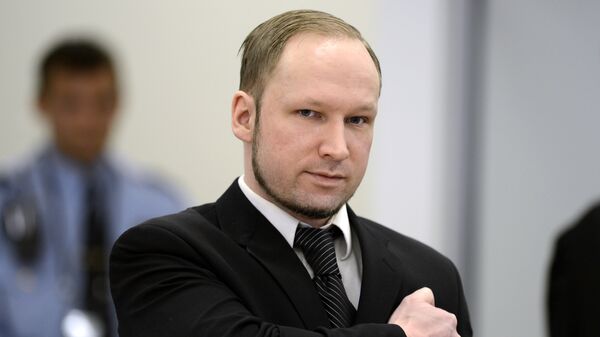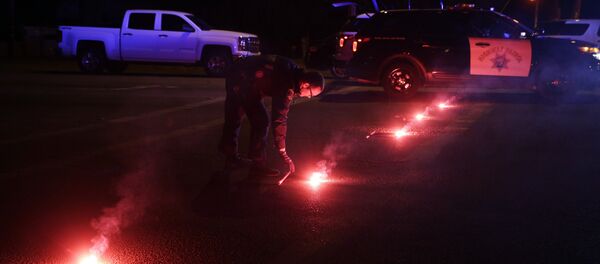Norway dismissed the accusations Wednesday. The office of the attorney general explained in a document submitted to the Oslo district court that the convict has been held apart from other inmates for security reasons. They added that he was still able to interact with guards and professional staff.
Breivik has three cells at his disposal: for living, for studying, and for physical exercise, according to the document. He is also allowed to watch TV, use a computer, although without Internet access, cook for himself and do his own laundry.
"There is no evidence that the plaintiff has physical or mental problems as a result of prison conditions," the office stated.
"There are limits to his contacts with the outside world which are of course strict — it pretty much has to be that way," the lawyer who will defend the state at trial, Marius Emberland, told reporters. "But he is not totally excluded from all contact with other people."
Breivik's lawyer Oystein Storrvik disagrees. Storrvik insists that "clear isolation damage" has taken place, noting that during the first two years of his sentence Breivik had only one visit "from a non-professional," his mother, who died soon after of cancer.
Previously, Breivik threatened he would go on a hunger strike unless his conditions improved. He also demanded access to better video games, a nicer sofa and a larger gym.
Breivik killed 77 people, mostly unarmed teenagers, in bomb and gun massacres in 2011.




